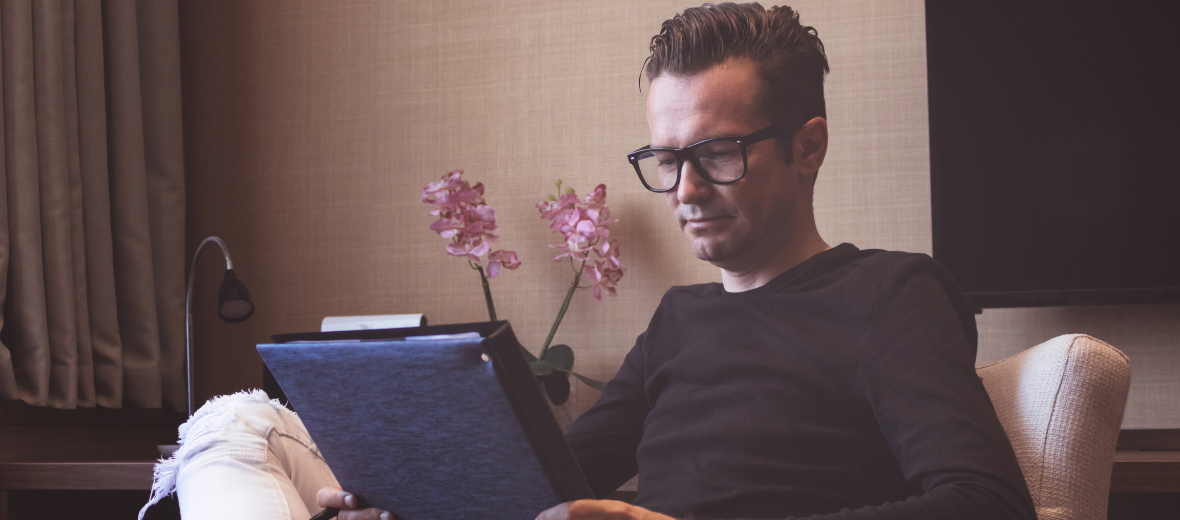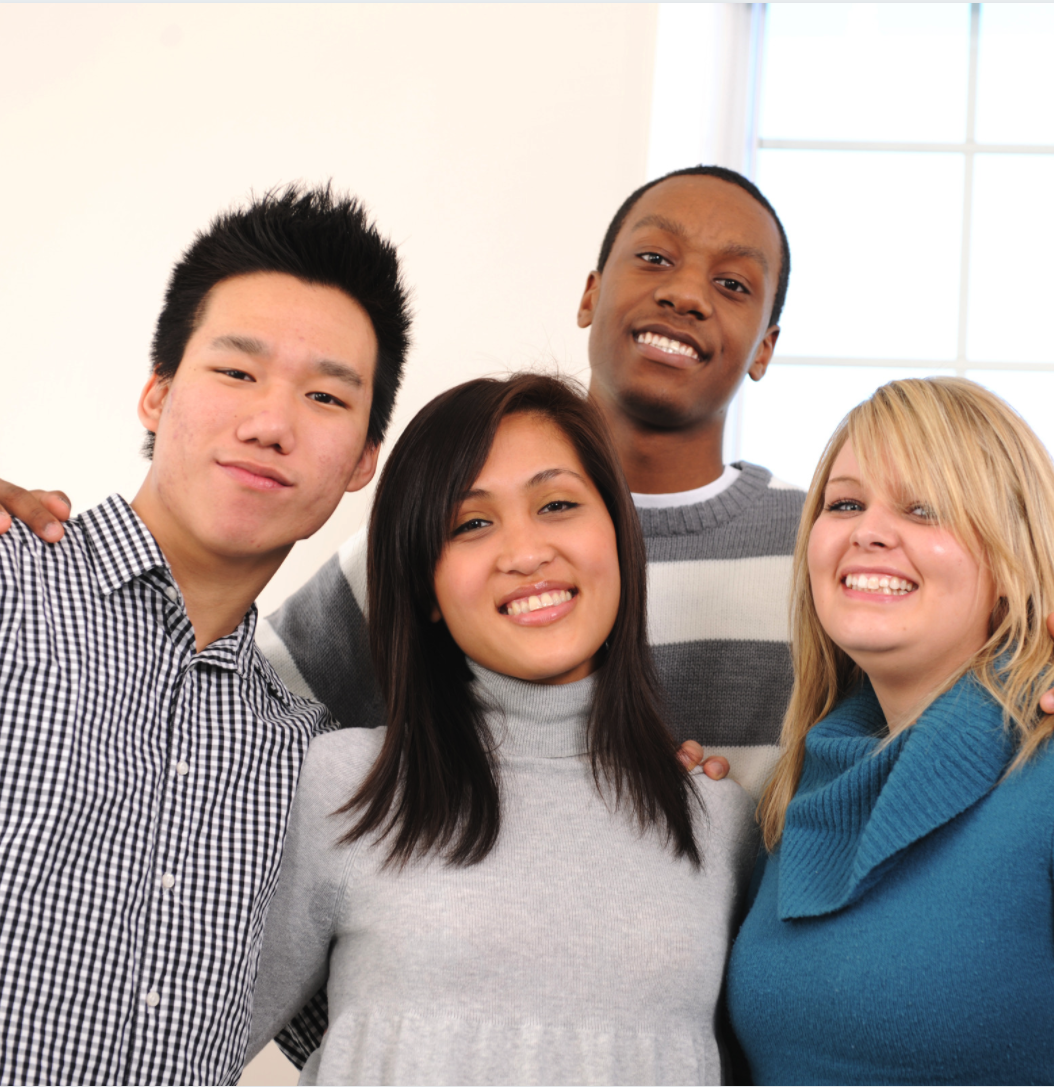My Story of Foster Care and Transracial Adoption
Adoption Advocate No. 65
Family is not about blood, it’s about who is willing to hold your hand when you need it most. –Unknown
National Adoption Month: An Anniversary Month of Reflection
I’m always grateful that Dorothy Boyce is my adoptive mom. November is a really special time for me because our nation recognizes and celebrates adoption, and my mom’s birthday is on November fifteenth.
November reminds me of how my life would be incredibly different if Dorothy Boyce hadn’t swooped down like an angel and changed the course of my life. Mom started a foster care home as a young mother of three. Over the course of fifteen years she was blessed to care for over forty children, and adopted six of us. Mom taught us that we were made for something more. She empowered us to believe we could do big things, and we were proud to be her children.
I’ve often wondered what made her so special, what made her want to turn her life upside down so that our young lives could be made right. She’s not one to want or seek recognition; she prefers to fulfill her mission of love from behind the scenes. All she wanted was to provide a secure, warm, and accepting place for children who were having difficult times. She wanted us to know we were accepted, loved, and always good enough. And to her it just didn’t matter that she was white and some of us were black.
Strength through Diversity
Being a black child with white parents was a huge factor in shaping my worldview. Our home was very diverse. I have white brothers, white sisters, a black brother, and a sister who is severely handicapped. That diversity and the spirit of inclusion that Mom instilled in all of us had a profound effect on our development as kids and our views as adults.
Mom has often told the story of how she taught me about different parts of the human body when I was two years old. She would point to her eyes, and then point to my eyes and say “eyes.” She repeated the same routine with my nose, my lips, my feet. I grabbed her hand, then looked at my own hand and began to well up with tears. “Bad, bad,” I said, while slapping my hand. My skin was different from hers, and somehow I thought that made me inferior, or that I had done something wrong. I didn’t understand how I could look different from my mother. Ever since that time, Mom has sought to instill in me a sense of pride in who I am, and an understanding that while we may look different, we still have a lot in common.
Dorothy’s Story
My mother Dorothy didn’t set out in life to adopt and foster racially diverse children; it just happened. As a parent of two black children and a foster mother of many more, her only goal was to provide a secure, warm, accepting place for all children who were facing difficult times. She wanted her children to know that, despite their challenging situations, they were more than “good enough” just as they were. Imagine what this nation could be, what we could accomplish for kids if everyone embraced that way of thinking.
Mom has a unique perspective, having started as a foster parent over twenty years ago when the environment and social norms were different. I asked her to share some of her thoughts and experiences in her own words:
A friend of mine once expressed an interest in giving a home to a child of another race. My immediate response is the same one I feel now: I was excited that she wanted to adopt a child and share her home with someone in need. She asked me about parenting a black child. I’ve adopted a child that happened to be black, but never parented that child any differently. Some would judge my approach as somewhat naïve and without regard to the needs of the child. In my mind and in my heart, raising a child to be a good person, to be a contributing member of society, to learn of his or her potential and take an interest in magnifying it to his or her greatest enjoyment, is the very nature of parenthood. That part is the same for a child of any race, any gender, or socio-economic circumstance. There is a lot that I don’t understand, but I’ve worked and studied to provide what I could. I always felt that I would be very, very lucky to be a mom to someone who needed me.
It Wasn’t Always Rosy
Some critics of transracial adoption point out the identity issues that children can suffer from if placed or adopted across racial lines. They point out that a lack of cultural and ethnic identity can end up being a detriment to transracially adopted children. I fully acknowledge this concern, and would be less than honest if I failed to mention the soul-searching process I went through regarding my own identity.
It hit me on my first day at the University of Central Missouri. I met more black students during orientation and at the gym that first week than I had encountered in the first nineteen years of my life. I’m not exaggerating when I say it all came as a shock. I felt different from my fellow black students. A young woman named Le Andrea was in my Public Relations class, and I remember I had the biggest crush on her. But I was paralyzed with fear when trying to talk and connect with her. I thought that, since I had never had a black girlfriend, I wouldn’t be able to relate to her. I dressed differently, changing my entire wardrobe to try to fit in. I thought that was a way to help me get in touch with my blackness. I traded in my khaki pants and collared shirts for baggy jeans and FUBU shirts.
I remember talking on the phone with Mom, sometimes in tears, about my identity crisis. “Mom! Why did you shelter me? I’m so different!” I told her. Mom, ever the patient one, was just as she always was – loving and full of grace. Thankfully her consistent perspective won the day, and after a few months of crisis I found other ways to explore the unique and vibrant culture found in the black diaspora.
I will admit that sometimes the dissonance lingers a bit. I will always cherish the religious experience and faith my mother exposed me to growing up. I remember with fondness the worship services, the campfire songs, the hymns, the quiet prayerful reflection, and the thoughtful sermons. Since I’ve been on my own, I have had opportunity to visit and explore other faiths. When I was 29 years old, I went to a predominantly African-American church for the first time. The singing, the three-hour worship services, the fiery sermons are on a whole different level, and far from what I experienced growing up. Sometimes I feel as though I missed out on something, and feelings of confusion and regret creep in. I think, “What if I had been adopted by a black family? Would I have experienced this all my life?” But whether it’s a traditional conservative Restoration church in the Midwest with predominantly white parishioners, or a dynamic Church of Christ church in Orlando, Florida, where 99% of the worshipers are African American, the Gospel message is the same, and in the end I feel fortunate to have been exposed to both.
There will always be differences in upbringing, in our diversity of culture, experiences, and education. Though my life could have been different if I had grown up in an environment with more black people, for me that alternative still couldn’t replace what my mother instilled in me, or her grace and kindness during my soul-searching process. What Mom instilled in me proved to be the most important ingredients for lifelong development. The other stuff was just the ripples of life – and the ripples are different for everyone, regardless of our dominant upbringing or background.
My Mentoring Experience
According to an August 2006 New York Times article, “Adopting Children of a Different Race,” the number of black children in foster care adopted by white parents has increased. That is what all foster care advocates should want: more children being placed in stable, loving environments.
Take, for instance, the story of my mentee, Kevin. When a friend first asked me if I would mentor a young teenager, I was hesitant at first. I serve on a number of nonprofit boards, ranging from the Board of Directors of the Congressional Coalition on Adoption Institute to the Board of Trustees at Valencia College in Florida. I love giving back, but it can be overwhelming at times if I don’t manage my time carefully. There was a pull on my heart to say yes to the idea of mentoring – most likely due to Mom and all the mentors in my life who said yes and took time out of their lives to invest in me.
I spoke with Kevin’s new mom, Ida, on the phone and asked her how I could help. She didn’t say, “Lucas, I’m white, and Kevin is black. Can you mentor him because he needs African-American role models in his life?” Kevin needed help learning to be assertive, expressing his feelings in a healthy way, setting appropriate boundaries, and feeling confident in himself.
I didn’t know Kevin was black until I picked him up to take him to his favorite restaurant a few months ago. During dinner, Kevin shared his hopes and dreams with me. He was incredibly humble and shared his perceived weaknesses and things he thought I could help him with. He shared with me his goal of becoming a motivational speaker, and as someone with a fair amount of public speaking experience, I’ve enjoyed sharing tips and tools to help put him on that path.
Kevin’s development has been fun to watch. Recently, I picked him up and brought him along to a speech I was giving. He beamed with pride as he announced he had made the bowling team at his high school. He followed it up with even bigger news: “Lucas, I have a girlfriend now! Her name is Grace.” “Wow! Congrats, Kevin,” I said. “Tell me all about her!” Kevin proceeded to tell me about this wonderful young lady he had met in class, and how he planned to take her to the homecoming dance. He was working hard so he would be able to pay for all the expenses, including a corsage, tickets, and dinner.
I thought to myself, Just a normal teenager experiencing normal teenage milestones – who happens to be black, adopted by a white mom.
Mentoring Kevin has helped me to understand that my experience wasn’t just an outlier. Kevin and I are only two of many kids who have experienced transracial adoption from foster care and gained love, stability, and acceptance in our adoptive families.
Would I Be Better Off?
Would a black parent have been able to provide the critical ingredients necessary for my healthy development? Yes, of course – and that’s the point. To me, while race is one important consideration and something adoptive parents should think about, it has no bearing on how well a parent can love, take care of, and support a child. Adoption is about that person, regardless of their skin color, who is willing to hold your hand and walk with you through the ups and downs of life, and be there by your side when you need it most.
While I’ve had questions and doubts and bumps along the road, I have no regrets about my own life and my adoption. I wouldn’t trade my experience for any other. Mom’s care, commitment, and consistent character education in each of her children’s lives is the principal reason why I am able to share with so many others the importance of empowerment and self-worth. The qualities she instilled in us are universally needed in parents, no matter their race. It was true back when I was a young boy, and it’s no less true today as we seek to help young people like Kevin grow and develop in a multiracial adoptive home.
Follow the Three “P”s
After prospective adoptive parents hear my story, they often pull me aside to talk more about transracial adoption. They want to be the best parents possible, and they question the effect their race will have on the children they foster or adopt. Because the color of their skin and cultural background is different, they are fearful that somehow they will limit a black or Hispanic child and rob that child of the benefits of growing up amongst “their own.”
My answer always echoes that of my mom: love is the same in any language. Yes, there are always differences – in culture, language, food, music, communication, and faith. Adoptive parents should absolutely study their child’s background and culture, and expose transracially adopted children to everything they can. But there are also a series of fundamental principles that can serve as a foundation for all of us. I call them the 3 “P”s.
Process: Understand that parenting is a process. It will have its ups and downs, and require love and flexibility. If you can embrace the whole experience for what it is, that will help when addressing the uniqueness of the process as experienced by you and your child.
Pain: I would be remiss if I didn’t say that there will be times of pain, even times of crisis. They may arise in different forms, with different challenges, depending on your experience. I’m sure it was painful for my mother when I lashed out at her during my own identity crisis. But Mom stayed the course, understanding that I would come out the other side stronger and more mature.
Patience: My mother was incredibly patient with me. I can’t imagine how she fostered over forty children in fifteen years while raising four of her own. She was also a single parent for much of the time. It was her patience and her faith in all of us, that made her the superhero mom she was.
My Promise. This “P,” my promise, is the outgrowth of the other three. My promise is that if your pursuit of transracial adoption is sincere, empathetic, and committed to understanding your child for who he or she is, it can be a journey like no other. It may not always unfold exactly as you or your adoptee would wish, but if these core values of love and commitment and empathy are joined with the 3 “P”s, I promise you your experience will prove better than you ever imagined. It takes courage and conviction for parents to adopt children of another race, but it can be done in a way that helps children cultivate appreciation for their culture – and that of others, too.
Seek Common Ground
All foster care advocates should be able to agree that ensuring the welfare of youth in foster care is the primary aim. The key is to be open and trust that we all have the same goal: to help children reach their fullest potential.
It is my hope that, as more and more transracial adoption research and commentary is published, all those involved in the discussion will seek common ground. In the final analysis, the long-term development and impact on children themselves should be a critical factor in determining our course of advocacy and action.
Final Thoughts on My Family’s Experience
My situation at the time of my birth was dire: six weeks premature, weighing just over four pounds, with drugs in my system. My teenage birth mother couldn’t take care of me, so Child Protective Services first looked for family members that could. No one stepped up. Transracial adoption was not as common or accepted back then as it was today, but my birth mom was courageous enough to release her baby boy into the arms of a white woman. Her doubts were overcome by her love for me. As the nation pauses this month to reflect on and celebrate adoption, I can honestly say that I am thankful for both my moms.
As for my adoptive mother, when even her own family members called her crazy for adopting a black boy, it didn’t stop her from being there for me. Her love also overcame her doubts. It has been said that “Family is not just about blood, it’s about who is willing to hold your hand when you need it most.” Mom’s courage propelled her to give me love and a family when I needed it most. Thirty-four years later, I remain grateful that she took me into her home and gave me a place in her heart, and to this day she continues to support me in all things and help me reach my full potential.



